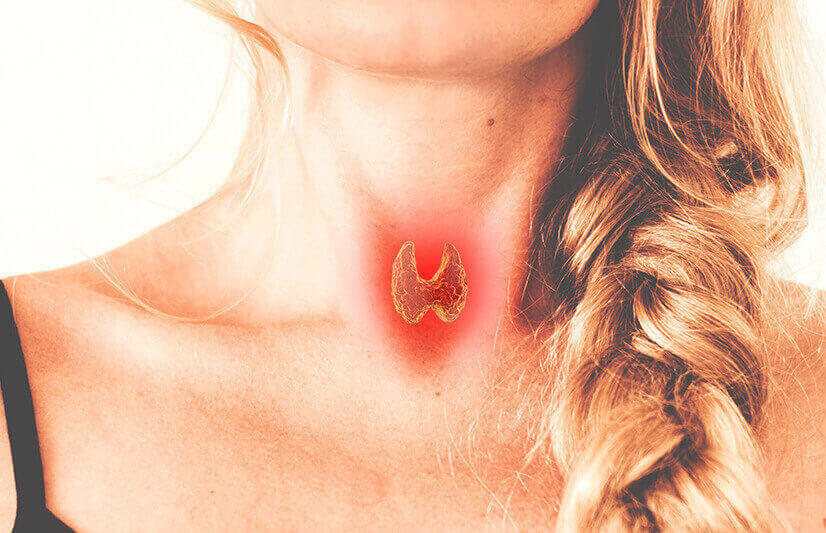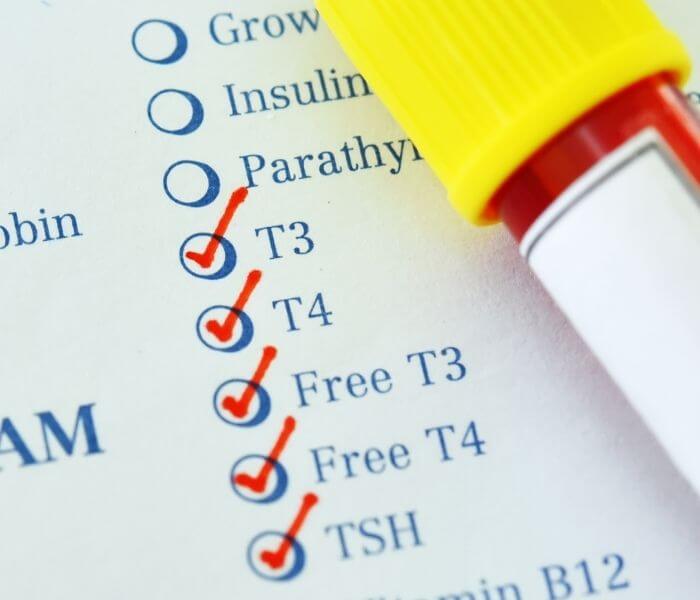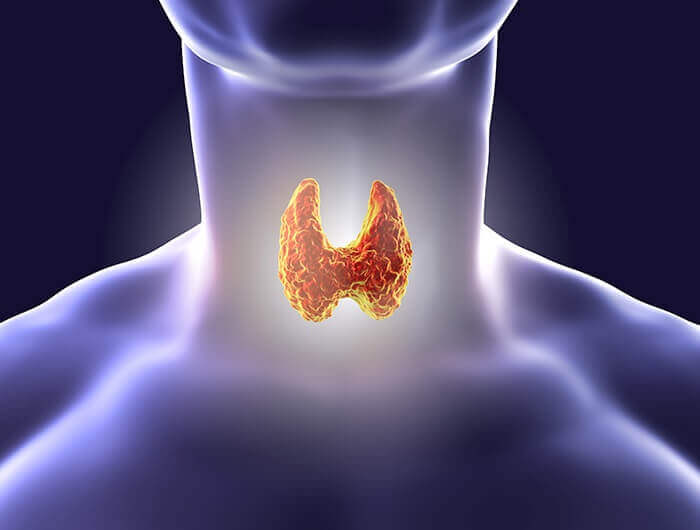4 mins read
How Your Thyroid Affects Your Weight

There is a complex relationship between the thyroid gland, metabolism and weight because thyroid hormones produced by the gland regulate the body’s metabolic processes.
Therefore, your thyroid hormone status is associated with your body weight and energy expenditure.
“Having thyroid disease can dramatically affect a person’s weight,” explains Lyn Mynott, CEO of Thyroid UK, “hypothyroidism will usually cause weight gain and hyperthyroidism will cause weight loss. The weight changes should improve once on the correct treatment”.
Too much thyroid hormone, hyperthyroidism, and the body has an increased energy expenditure at rest, reduced levels of cholesterol and a loss in weight. Too little thyroid hormone or hypothyroidism, on the other hand, is associated with a reduced resting energy expenditure, increased cholesterol levels and weight gain.
What Does the Thyroid Do?
The thyroid is an essential hormone-producing gland situated at the front of our neck. The hormones the gland produces are essential for the normal functioning of our body cells and the speed at which they work.
It has a major role in the growth and development of the body, too. For example, if the body is growing or we become cold or we fall pregnant, the thyroid simply produces more hormones to cope with the changing situation.
What Hormones Does the Thyroid Produce?
The gland produces three hormones:
However, T3 and T4 are only really considered to be true thyroid hormones. Iodine is an essential component to produce both hormones. So, we must make sure we consume iodine in our diet to help keep our thyroid hormones at optimum levels.
Both T3 and T4 increase our basal metabolic rate. Our basal metabolic rate or BMR is the number of calories our body requires to continue functioning at rest.
T3 and T4 make each cell in the body work harder which also requires more energy.
How Do Imbalances Affect My Weight?
If you have hyperthyroidism, your Basal Metabolic Rate (BMR) is increased due to the upsurge in the production of thyroid hormones. Therefore, as your cells are working harder and your energy expenditure increases you may experience some weight loss.
How much weight you lose depends on the severity of the hyperthyroidism. If severe, the number of calories you need to consume will increase to maintain your weight. So, if this caloric requirement isn’t met i.e. you don’t eat as many calories as those being burnt, then weight loss will occur. Generally, the more severe the hyperthyroidism, the more weight you will lose.
With hypothyroidism, the opposite is normally expected. As the BMR is decreased, individuals may experience some weight gain. However, the decrease is less dramatic than the increase seen in hyperthyroidism, so changes are often more subtle. Usually, increases are between 2 and 5 kg rather than huge rises in weight.
The thyroid can not only become over or underactive, but it can grow, too. In the case of a diffuse goitre, the whole thyroid can increase in size or lumps can appear on it, known as nodular goitre. Health professionals can test to see if these nodules are producing abnormal levels of hormones using thyroid scintigraphy – a procedure allowing doctors to visualise the thyroid using radionuclides. They are known as ‘hot’ nodules if they produce more hormones than the rest of the thyroid, and ‘cold’ nodules if they produce less.
Could Thyroid Hormones Help Regulate Our Weight?
There are some studies which show thyroid hormones could have a novel role in the regulation of body weight.
In one study conducted among overweight and obese individuals, higher baseline free T3 and T4 levels were shown to be significantly associated with more weight loss at 6- and 24-month intervals, using weight-loss diets. However, there seems a little way to go before thyroid hormones are used to regulate our weight.
Instead, lifestyle choices can play key roles in our wider health. For example, diet and exercise are important factors in not only maintaining or losing weight, but our general wellbeing, too. Both have many benefits and can prove extremely useful in managing the symptoms of thyroid conditions.
Any Advice?
Lyn adds, “Take control of your own health. Do some research about your condition especially regarding blood tests and results. Keep a diary of your symptoms in relation to your test results and dosage of medication, so that you can see where you feel best. Eat healthily making sure you eat a range of foods that include iron and selenium”.
- Health scores calculated
Close
Article references
-
Liu, G et al. (2017). Thyroid Hormones and Changes in Body Weight and Metabolic Parameters in Response to Weight-Loss Diets: The POUNDS LOST Trial. Int J Obes (Lond): 41(6), pp 878-886.
-
Mullur, R., Liu, Y, Y and Brent, G, A. (2014). Thyroid Hormone Regulation of Metabolism. Physiol Rev: 94, pp 355-382.
This information has been medically reviewed by Dr Thom Phillips
Thom works in NHS general practice and has a decade of experience working in both male and female elite sport. He has a background in exercise physiology and has published research into fatigue biomarkers.

Dr Thom Phillips
Head of Clinical Services
Related articles
Like this article? Here are some more based on similar topics.





